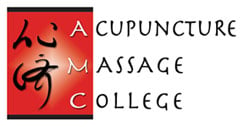This class is designed to give or refresh the student's basic knowledge of research techniques and oral and written presentation of research and case histories.
Clinic work occurs each semester in the Oriental Medicine training program. The clinic portion is designed to build up student skills, confidence, and comfort level one step at a time. In Supervised Clinic Practice, students develop their interviewing skills, develop their case taking skills, write SOAPs, establish a good rapport with the patient, perform an elementary physical exam, write a treatment plan, and practice their acupuncture techniques. Students are expected to begin their herbal training with herbal patients and in the herbal dispensary. Students will be encouraged to further develop their Asian Bodywork skills by giving 30 additional Asian Bodywork treatments. (Prerequisite: SCO-333)
This course provides a general study of the blood work and its biochemical analysis. Emphasis is placed on the most commonly used laboratory data and their interpretation.
This class is a continuation of Pathology I. Students will learn the signs, symptoms and management of various essential pathologies. In addition, students will review information about the mechanisms of disease and the pathological processes that occur within each system of the human body. (Prerequisite: PA1-404)
The course provides the student with information about the mechanisms of disease and the pathological processes that occurs within each system of the human body. The following subjects are covered: Cellular Pathology, Inflammation, Neoplasms, Immunopathology, Genetic Disorders, and Diseases of the circulatory, respiratory, digestive, heamtopoietic, lymphoid, and endocrine systems. (Prerequisite: ANP-301)
This course is designed to give the student a basic knowledge of orthopedic assessment applicable to a Massage Therapist. Students will learn detailed information about biomechanics and injury assessment, as well as a discussion of the HOPS (History, Observation, Palpation, and Special tests) system of assessment commonly used in orthopedics and sports medicine. Performing these tests and evaluations will assist students to develop an appropriate and effective treatment plan.
This course gives the students a foundation in the principles of good reasoning, with instruction in logical analysis of argument and the application of critical thinking in ordinary situations.Assignments will assist students in practicing and enhancing critical thinking and problem-solving skills.
This course provides a topic-based approach to various concepts in historical and contemporary philosophy. Instead of learning the history of philosophy and focusing on major figures, students will examine and discuss a variety of topics through the lens of both Eastern and Western philosophy, in order to gain an understanding of how humans in all times and places have developed different approaches to complex philosophical, ethical, moral and spiritual issues.
This course will introduce students to the fundamentals of public speaking, including understanding the audience, researching and delivering a speech. Students will gain skills and confidence by speaking for the classroom audience, and will create and use visual aids. Oral and written assignments will cultivate critical reasoning, analytical, and argumentative skills.
Course code
This course teaches the fundamentals of written communication at the college level. Students will learn how to improve their writing beginning with exposure to different genres and a variety of readings of different lengths. The individual's writing process will be enhanced by workshops and other group approaches to writing. A Library assignment will introduce concepts of college-level research. The course underscores the importance of the revision process.
This course provides an introduction to the principles and history of psychology, including the growing field of "positive psychology" and its effects on human thought and behavior. Topics include the major field theories and interpretations of data that contribute to an understanding of how human beings think, feel, act and develop as individuals and in relation to society as a whole. Students will complete a variety of self-assessments and other exercises that help them identify their potential and cultivate their own strengths. Positive relationships as well as many of the subtopics of positive psychology, such as life meaning, religion/spirituality, career development, and positive psychology interventions will be explored during this course.
This introductory course in nutrition for non-science majors is designed to provide the student with the function of the essential nutrients. Current ideas and theories in nutrition will be discussed. Diseases linked to nutritional causes and those prevented by nutrients will be examined. Students will be introduced to various methods of research in nutrition and will be required to write a research paper.
This class begins the study of TCM herbal medicine. The format of the class is such that study of formulas is combined with the study of materia medica. Introductory materials on both aspects of TCM herbal medicine will be presented, along with orientation to the AMC herbal dispensary. Study of the material itself will begin with some two dozen of the most commonly used formulas in modern practice, focusing on the treatment principles of Qi, Blood, Yin and Yang supplementation and harmonization of liver and spleen. The formulas are presented in such a way as to build on those previously taught, thus enhancing understanding of formula composition and ensuring retention of the material taught. Individual medicinal will be presented within the context of the formulas themselves. The module will include more than 50 of the most important Chinese medicinal, including their taste, temperature, functions, indications, dosage, and contraindications. Practical experience in identifying and handling the medicinal themselves as well as grouping them into formulas will prepare the students for their role in dispensing the herbs in the student clinic. (Prerequisite: DSY-312)
This third clinic course continues to be observational. The clinic portion is designed to build the student's skill, confidence, and comfort level one step at a time. In this semester students are allowed to assist in Oriental bodywork treatment, begin to practice pulse diagnosis, and participate in case discussions. (Prerequisite: SCO-332)

 (305) 595-9500
(305) 595-9500






